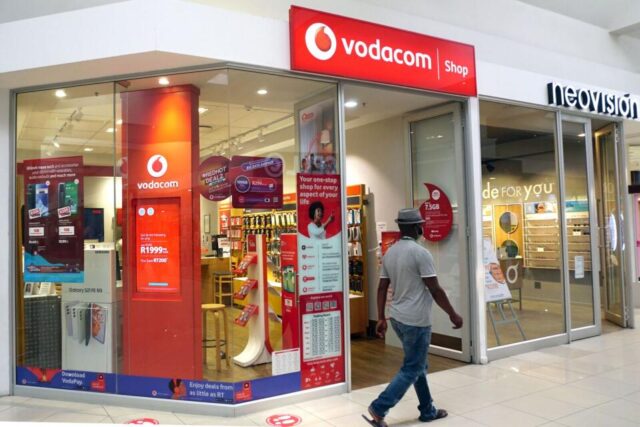Should the proposed $862 million (R16 billion) deal fail between Vodacom and Maziv, with its fibre network assets Vumatel and Dark Fibre Africa (DFA), it would be a major setback to the mobile operator’s expansion plans.
SHOULD the proposed $862 million (R16 billion) deal fail between Vodacom and Maziv, with its fibre network assets Vumatel and Dark Fibre Africa (DFA), it would be a major setback to the mobile operator’s expansion plans.
However, Mergence equities head Peter Takeandesa said, as per the market updates published by Vodacom and Remgro, they believed there was still a chance that the Competition Tribunal and the Competition Appeals court might reach a different decision and allow the transaction to proceed.
“The market had largely taken this transaction as a done deal given the telecoms regulator Icasa had approved and the parties involved in the transaction were optimistic that the chances of success were high given there is no spectrum involved.
“The market also believed Vodacom had done its homework very well with this transaction, given its learnings from the failed transaction to acquire Neotel a few years ago,” he said.
This week the deal, which the market thought was a “done deal”, received an unexpected blow after the Competition Commission recommended that the proposed $862m agreement between Vodacom and Maziv be prohibited, citing that it would lessen competition.
In November 2021, Vodacom announced an agreement to buy a co-controlling interest in the JSE-listed Remgro unit Community Investment Ventures Holdings (CIVH), including fibre network operators Vumatel and DFA. Community Investment Ventures Holdings is the parent of Vumatel while Remgro is the controlling shareholder of CIVH. Remgro owns 57% interest in CIVH.
On Tuesday, Vodacom said it was surprised and disappointed with the Competition Commission’s recommendation to forbid the proposed merger with Maziv, it said, instead, the next step was for the proposed transaction to be presented to the Competition Tribunal.
Takeandesa said, “Obviously the parties to the transaction see this as a great opportunity to build a bigger and more profitable fibre business that can keep taking market share from Telkom.
“It’s quite likely that the aspects of the proposed transaction that the transacting parties find most attractive are also the key concerns for the competition authorities especially given the fixed broadband market is still in the early stages of growth in South Africa compared to mobile data penetration,” he said.
The competition between fibre and 5G mobile data connectivity appeared to be one of the key focus areas for the competition authorities.
“Our view is that there are valid reasons in support and against the transaction, but it will all come down to what is more important to the regulators as they balance the need for investment in the country against long-term industry competition structure,” Takeandesa said.
He said failure of this transaction would be a major setback to Vodacom in the same way peer MTN had so far failed to acquire Telkom’s fibre assets.
“The implications for Telkom are quite mixed as the failure of the transaction gives it breathing room from a fibre competition point of view (although CIVH’s controlling shareholder Remgro has a strong balance sheet to keep funding growth), but this also likely means there is no longer any chance of a transaction with MTN,” Takeandesa said.
According to Arthur Goldstuck, the managing director of World Wide Worx, one could see the positives and negatives of the Vodacom and Maziv merger, and also, one could see why the Competition Commission decided to block it.
Goldstuck said in an interview that, given the nature of fibre access in South Africa, one had to consider what should be the greatest good for the greatest many, and this deal would provide a far greater good for far more people than if it was not allowed to go through.
“The Tribunal may come to a different decision. I think what should happen is the Competition Commission should look for certain assurances from Vodacom rather than simply blocking the deal set out,“ he said, saying there was an opportunity to ensure that Vodacom met conditions that would ensure it doesn’t reduce jobs, but rather than increases employment, and that it brings down the cost of fixed-line broadband.
Remgro said it and CIVH remained committed to the transaction and firmly believed that, should the implementation of the deal be permitted by the Tribunal, it would deliver significant benefits to South African consumers and the broader economy.
“Vodacom’s proposed investment of over R10 billion in terms of the transaction will increase competition given that Vodacom-owned fibre assets will be made available on an open access, transparent and non-discriminatory basis to the market.
“In addition, the investment will enable Maziv to extend fibre infrastructure to new households within previously under-served, lower-income areas, create new jobs, and facilitate the creation of small to medium enterprises through a fund formed specifically for this purpose,” Remgro said.
– BUSINESS REPORT








